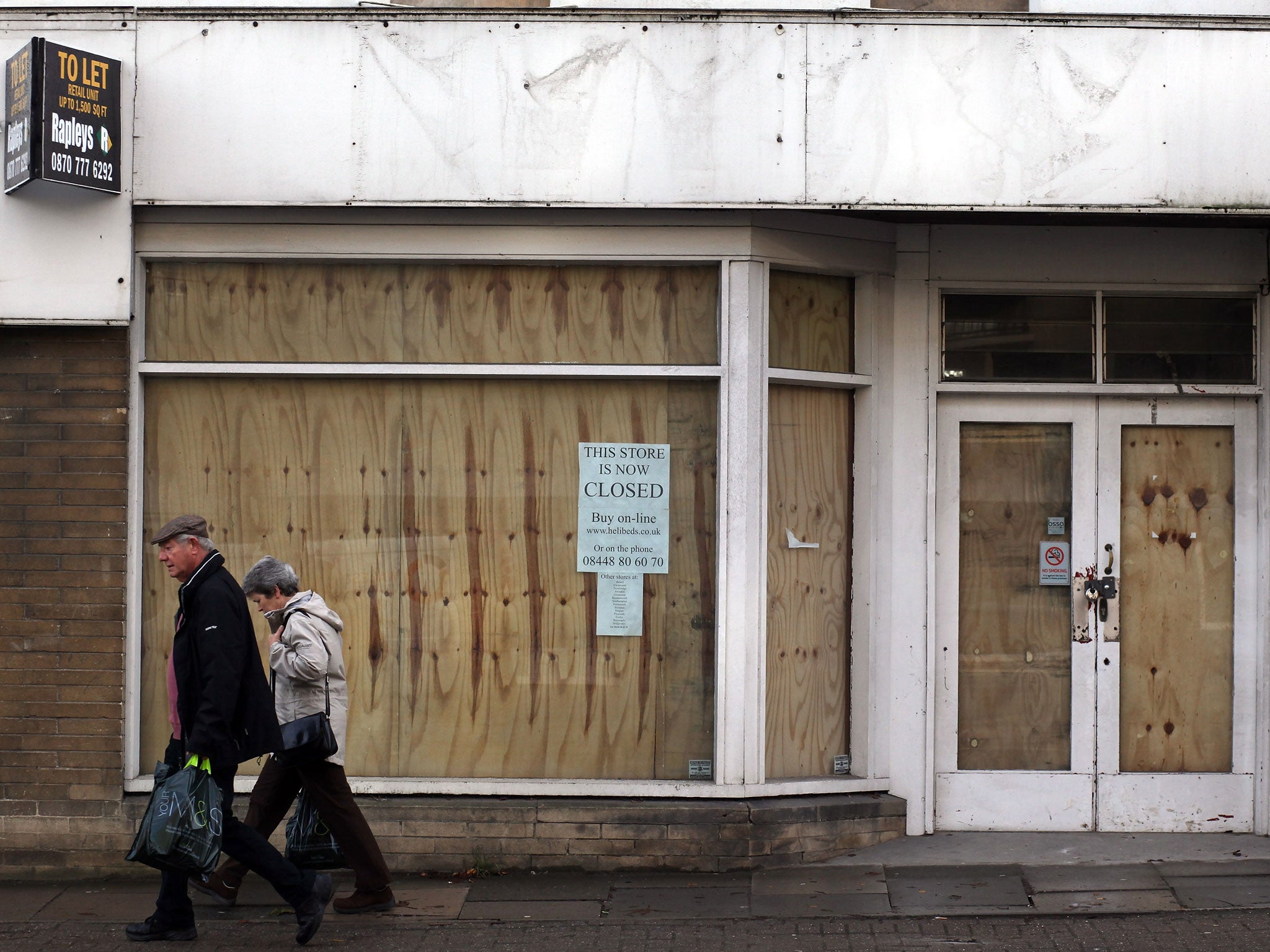We can't turn back the online shopping tide, but we can change the way we think about high streets
An average of one in eight UK shops now lies empty: in some areas, it's much more


Your support helps us to tell the story
From reproductive rights to climate change to Big Tech, The Independent is on the ground when the story is developing. Whether it's investigating the financials of Elon Musk's pro-Trump PAC or producing our latest documentary, 'The A Word', which shines a light on the American women fighting for reproductive rights, we know how important it is to parse out the facts from the messaging.
At such a critical moment in US history, we need reporters on the ground. Your donation allows us to keep sending journalists to speak to both sides of the story.
The Independent is trusted by Americans across the entire political spectrum. And unlike many other quality news outlets, we choose not to lock Americans out of our reporting and analysis with paywalls. We believe quality journalism should be available to everyone, paid for by those who can afford it.
Your support makes all the difference.For more and more people these days, the idea of retail therapy doesn't entail leaving the house. No public transport, no car journey, no search for a parking space, and no need to walk up and down the high street in all kinds of weather. Online shopping is just one of the reasons why actual, real-life, bricks-and-mortar retailing in the towns and cities of Britain is currently in crisis. The economy, notwithstanding what George Osborne may want us to believe, is another. Plus soaring levels of rents and rates. The never-ending winter has also had an effect. And then there are the out-of-town supermarkets driving traffic from the high street. Whatever the combination of causes, the stark fact is that the number of empty shops in Britain's high streets or malls is higher than it has ever been.
Across the UK, an average of one shop in eight now lies empty: in some areas, it is much more. As well as building a picture of economic gloom to which everyone can relate, these figures produced by the British Retail Consortium reveal just how the stark the regional variations are in terms of prosperity.
In Wales and Northern Ireland, the emptiness quotient goes up to one shop in five, while in London it's less than one in 10. In fact, a brief stroll through bustling central London would lead the casual observer to believe that things have never been better, and that consumers are falling over themselves to spend more. The overall picture is much more bleak, which is why the government turned to Mary Portas to come up with some ideas to breathe a bit more life into High Street, Britain.
Her report was issued in December 2011, and although it remains to be seen whether one of her core proposals - the granting of £100,000 to 12 towns who came up with the most inventive proposals to attract customers back to their shops - is gaining any real traction. And within the retail industry there is much grumbling that the money would have been put to much better use to help shops in danger. There is criticism, too, about the delay in publishing a report which independently verifies how effective this policy has been.
Meanwhile, the blood is draining away from our commercial life, and our high streets are now increasingly populated by charity shops, betting emporiums, pawnbrokers and estate agents. Wouldn't it be a good idea, given that we cannot turn back the tide of online shopping, to think differently about high streets? To think of them as community rather than commercial centres? A friend of mine told me that, in his town in London's commuter belt, the local library has just been moved from the outskirts of town to bang in the middle of the main shopping street, taking the space vacated by Woolworths. The result? A buzzing local facility that's resurrected a boarded up shop, improved usage of the library and provided more footfall for local shops. Could the boarded-up shops of Britain be transformed into, say, nurseries, doctors' surgeries, or even schools? All it would take is a little more imagination, a desire to and an acceptance that the course of history can't be changed.
Join our commenting forum
Join thought-provoking conversations, follow other Independent readers and see their replies
0Comments